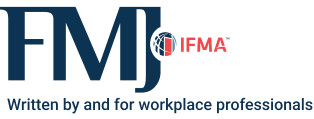Navigating the Challenges
Securing data collection in portfolio management

Property managers face many challenges when ensuring compliance with property management regulations, particularly concerning data collection and management. The General Data Protection Regulation (GDPR), Federal Risk and Authorization Management Program (FedRAMP) and similar mandates require rigorous standards to be upheld for optimal data security and privacy. Additionally, property managers must make sure that all collected data, such as property ownership records, lease agreements and financial transactions, is accurate, secure and up to date to avoid penalties and legal issues.
A major challenge in adhering to property management rules and regulations is collecting only relevant and essential data. For example, when dealing with real property assets, it is crucial to avoid collecting sensitive data and focus solely on information pertinent to property management. This includes capturing property descriptions, ownership details and relevant financial information without collecting sensitive organizational data.
Secure property data management is also essential. Implementing thorough security measures to protect against breaches, unauthorized access and cyberattacks can help safeguard the data collected. Secure data management is also key to maintaining compliance with relevant regulations.
Additionally, property managers must work closely with IT personnel to ensure that information assurance standards are being met and upheld. The most important regulations to be aware of include the Cybersecurity Maturity Model Certification (CMMC), FedRAMP and the industry-wide security standards outlined in SOC 2. These standards are particularly crucial for those managing government properties, as they require stringent cybersecurity practices and secure cloud services.
Finally, transparency in data management is a must. Stakeholders should be informed about what data is collected and how it is used. Transparency helps keep client data private and secure, preventing unauthorized access or data breaches. It is crucial that the requirements for securing client data are clearly defined, thoroughly worked out and agreed upon by all parties involved.
The importance of maintaining data security & protection
Safeguarding data is a critical responsibility in both small and large organizations. To facilitate this, access to collected data must be tightly controlled, preventing unauthorized personnel from viewing sensitive information.
A comprehensive security framework must be implemented for effective real property management data collection. Property managers must work with their IT teams to make data protection a core element of their operations, embed security protocols from the outset and adopt privacy-by-design principles. This process involves integrating security measures into IT systems and business practices from the initial design stages and maintaining them through regular updates as technology and regulations evolve.
Continuous training programs on data protection laws and ethical handling practices are also crucial practices to put in place for staff. These programs reinforce the importance of security and ensure that everyone in the company understands their role in protecting data.
Implementing data anonymization and aggregation techniques can further mitigate security risks. For example, anonymizing data or using aggregated information for analysis can protect sensitive details while still providing valuable insights. Additionally, employing strong encryption and strict access controls is vital to safeguarding data against unauthorized access and potential breaches.
4 strategies & tools to mitigate data risks
To effectively mitigate the risks associated with data collection, storage and utilization in real property portfolio management, property managers can employ the following strategies and tools:
1. Advanced data management platforms
Utilizing advanced data management platforms with governance features can significantly enhance data security and compliance. These platforms typically offer tools for consent management, data anonymization and compliance reporting. They help ensure that data related to property ownership, lease agreements and financial transactions is managed securely and in accordance with regulations.
Key features:
-
Consent management: Records and manages consent from stakeholders — including property owners and tenants — for data collection, use and sharing related to ownership records, lease agreements and financial transactions, ensuring compliance with GDPR, FedRAMP and other regulations.
-
Data anonymization: Protects organizational data by anonymizing it where possible.
-
Secure data handling: Provides tools and protocols to make sure data is handled securely throughout its life cycle.
2. Regular audits & assessments
Conducting periodic audits and assessments is critical for identifying and addressing potential vulnerabilities in data management practices. These audits should evaluate compliance with regulations and data security protocols, as well as the accuracy and completeness of data records.
Key benefits:
-
Early detection: Identifies potential compliance issues before they become significant problems.
-
Continuous improvement: Provides insights for ongoing improvements in data management practices.
-
Regulation management: Aligns data management practices with current regulations.
3. Multilayered security measures
Implementing multilayered security measures is essential for protecting data from breaches and unauthorized access. Continuous monitoring, real-time threat detection and regular system updates keep security controls effective and up to date. These components, guided by FedRAMP principles, work together to create a resilient security framework that continuously protects organizational data in real property management systems.
Key components:
-
Continuous monitoring: Involves real-time assessments and vulnerability detection so that security measures adapt to evolving threats.
-
Encryption & access control: Utilizes strong encryption methods and strict access controls to safeguard sensitive data at every stage.
-
Data anonymization: Reduces risk by anonymizing data where possible, making it difficult to trace back to individual users.
-
Regular reauthorization: Periodically reevaluates security measures to maintain compliance and effectiveness over time.
Ethical data use policies
Developing and enforcing strict ethical data use policies helps define acceptable data practices and promotes ethical behavior among employees. These policies should outline the principles for data collection, storage and usage so that all practices adhere to legal and ethical standards.
Policy components:
-
Data collection principles: Guidelines on what data can be collected and how.
-
Data storage practices: Standards for secure data storage and access control.
-
Data usage: Rules for how data can be used and shared within the organization.
By employing these strategies and tools, property managers can effectively alleviate the risks associated with data collection, storage and utilization. These measures help maintain the trust of stakeholders, ensure compliance with regulations, and uphold the privacy and security of organizational data. In doing so, property managers can foster a secure and optimized environment for managing real property assets.
The future of data collection & regulatory compliance
Looking ahead, the landscape of property management data analytics will continue to evolve, spurred by advancements in technology and increasing regulatory demands. Emerging technologies such as artificial intelligence and machine learning will also offer new opportunities for enhancing property data management. These technologies can automate data collection processes, improve accuracy and provide deeper insights through information analytics.
Additionally, as regulation standards become more stringent, property managers will need to stay ahead of the curve by continuously updating their compliance strategies. This will involve staying vigilant of changes in property management regulations and adopting innovative tools and best practices to maintain data security and privacy.
In an evolving environment, property managers must prioritize ongoing education and training to navigate the complexities of property management regulations. By doing so, they can ensure that their practices remain compliant and ethical, ultimately building stronger, more resilient property management systems.
By embracing these future trends and technologies, property managers can not only mitigate risks, but also enhance their operational efficiency and stakeholder trust, paving the way for a more secure and compliant future in property management.

Nathaniel Sykes is the executive vice president at R&K Solutions, where he leads the company’s IT infrastructure, security and compliance initiatives. With over two decades of experience, Sykes has deep expertise in cybersecurity, cloud services and risk management. He holds multiple GIAC certifications and earned his bachelor’s degree in business information technology from Virginia Tech. Sykes is passionate about empowering businesses through secure technology solutions.
Read more on Technology and Real Estate or related topics Analytics and Data strategy and information management
Explore All FMJ Topics








